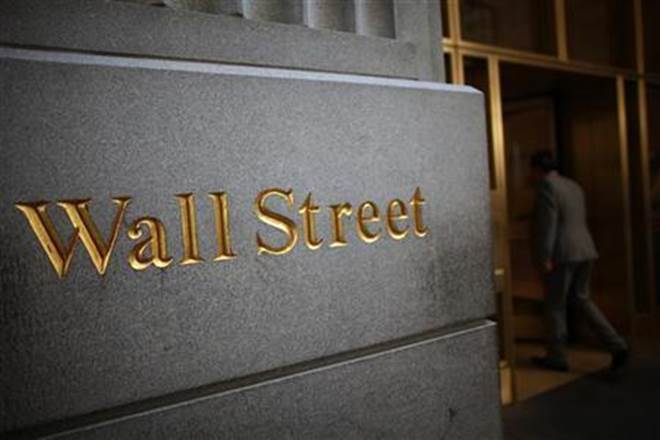Wall Street banks and hedge funds are closing in on a fix that they hope will clean up an $8 trillion portion of the derivatives market that’s gained a reputation for being one of the shadiest corners in finance.
At issue are a number of transactions in recent years in which powerful investment firms have been accused of earning big money from swaps trades by enticing companies to miss bond payments they could otherwise make. The practice has eroded market confidence, triggered legal fights and led to scrutiny from regulators.
After months of negotiations, titans including Goldman Sachs Group Inc., JPMorgan Chase & Co., Apollo Global Management and Ares Capital Corp. have agreed to a plan that’s intended to ensure defaults are tied to legitimate financial stress, not traders’ derivatives bets, said three people familiar with the matter. An industry trade group, the International Swaps and Derivatives Association, may propose the overhaul as soon as Wednesday.
The revamp would affect credit-default swaps, instruments that contributed to the 2008 financial crisis that insure against a bond issuer’s bankruptcy or failure to pay. But the fix is limited to one type deal, so-called manufactured defaults, and it remains unclear whether it will bolster confidence in a corner of the market that critics say has become a playground for creative traders and lawyers.
‘Narrowly Tailored’
“There have been concerns that narrowly tailored credit events negatively impact the efficiency, reliability and fairness of the overall CDS market,” Jonathan Martin, director in market infrastructure and technology at ISDA, said in a statement. “We hope these proposed changes will address that.”
If enacted, the changes would be among the biggest to the CDS market in years. The new terms would lay out that a company’s failure to make a bond payment must be tied to its creditworthiness, according to the people who asked not to be named as the details haven’t been made public.
READ ALSO | Wall Street slips as General Electric swoons, key market level looms
While the changes are voluntary and lack the teeth of regulations, firms that refuse to sign on could have trouble finding trading partners. The overhaul could be completed in the next few months, but full implementation could take much longer, two of the people said.
The new standards would apply to new CDS contracts, and existing agreements could also be amended. Still, it’s unclear whether the coming directive will capture all the creative ways that firms have structured CDS trades to make money.
Tipping Point
ISDA’s decision to clamp down is a recognition that manufactured defaults might be deterring some investors from entering the market. In addition, the industry wants to show global regulators it can address the problem on its own to stave off stiff rules and beefed-up government oversight.
A trade widely seen as a tipping point occurred last year when Blackstone Group LP’s GSO Capital Partners encouraged homebuilder Hovnanian Enterprises Inc. to skip an interest payment in return for a sweetheart loan. Firms that were at risk of losing money protested because they had sold CDS insuring against a missed payment. One hedge fund, Solus Alternative Asset Management, even sued GSO, which ultimately agreed to unwind its trade.
‘Gun Shy’
“People had become gun shy about using the CDS product to invest in and manage credit risk,” said John Williams, a law partner at Milbank who represents buyside firms active in the CDS market including Apollo and Ares. “This is a very serious effort to make the rules fair.”
In the wake of the Hovnanian controversy, Bennett Goodman, one of the founders of GSO, said that Blackstone would back revamping the standards that govern CDS trades. Blackstone wasn’t formally part of the group that reached the preliminary agreement, one of the people said, but there is no indication it will oppose the plan.
Representatives for Blackstone, JPMorgan, Goldman Sachs, Apollo and Ares didn’t respond to requests for comment on the proposal.
In a sign of how serious regulators have been taking the issue since the Hovnanian trade, the U.S. Commodity Futures Trading Commission warned last April that “manufactured credit events may constitute market manipulation and may severely damage the integrity of the CDS markets.”
Government Pressure
The CFTC’s chairman, J. Christopher Giancarlo, said at the time that he hoped ISDA would resolve the matter with market participants. Meanwhile, U.K. Financial Conduct Authority Chief Executive Officer Andrew Bailey said in July that “this is a practice that’s the wrong side of the line.”
Other manufactured defaults that have led to outrage include transactions involving radio broadcaster iHeartMedia Inc., paper maker Norske Skog AS and Spanish gaming company Codere SA. Back in 2013, Jon Stewart even criticized Blackstone on “The Daily Show” for persuading Codere to delay an interest payment and trigger payouts on its CDS.
“When the rules can be manipulated it’s very painful to be the second-smartest guy on the street,” said Williams, who also represents Blue Mountain Capital Management, CQS and Brigade Capital Management.
It remains to be seen whether ISDA’s proposal will appease all market participants. The plan targets manufactured defaults, indicating it may not cover some transactions that have drawn investors complaints. For instance, hedge fund Marble Ridge Capital this week criticized a deal that allowed Neiman Marcus Group Inc. to delay bond payments while rewarding firms that used CDS to bet against the retailer’s debt.
